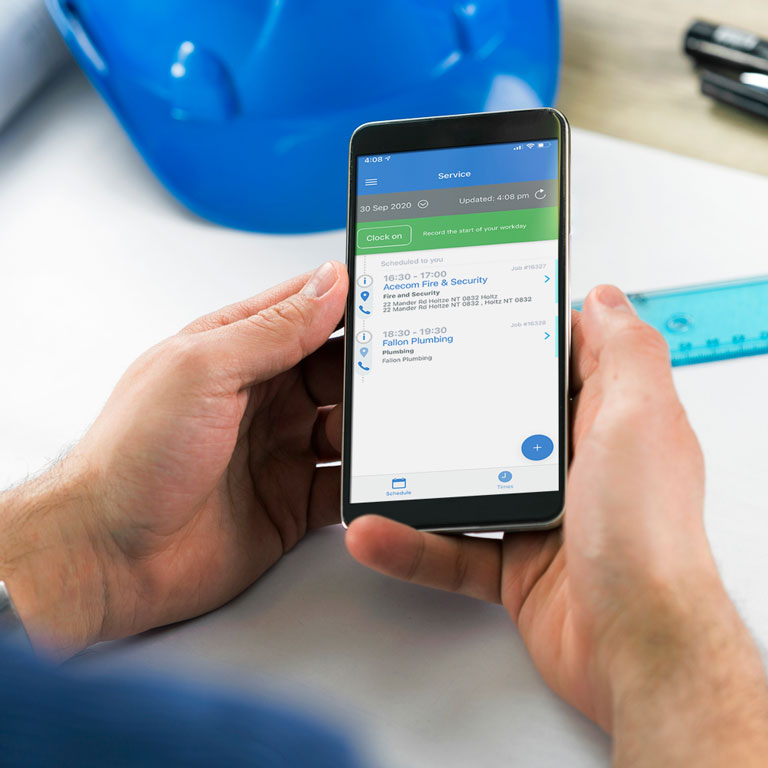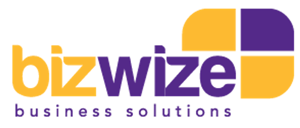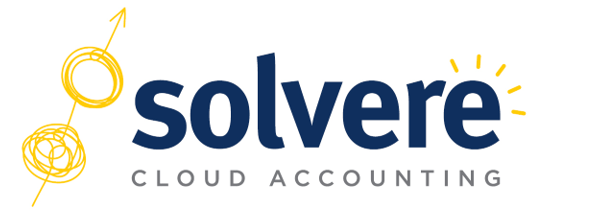
Does payroll give you night sweats? You're not alone. Regardless of the industry, every business owner knows that payroll is a HUGE operating expense that can lead to unhappy employees, legal issues, or negative taxation repercussions. That’s why it is important that field service businesses perform regular health checks on their payroll process in conjunction with a trusted advisor.
Accountants, bookkeepers and business consultants from around the world are sharing their health check tips in a new series that will be featured on the Simpro blog over the coming months. In this first installment our experts take a look at:
- The ideal payroll frequency for field service businesses
- Encouraging staff to complete their timesheets on time
- Choosing the right accounting software
- Strategies for switching to a new accounting package
Meet our panel of experts

Michelle Marley
Bizwize Business Solutions

Tracy Ebbetts
Solvere Cloud Accounting

Kunal Topiwala
SME Financial

Mishali Patel
SME Financial
What Is The Ideal Payroll Frequency For A Field Service Business?
One of the first decisions every business owner faces when they start out is, “How often should I pay my employees?” Not only should business owners factor in employment laws, but they also need to consider their business model and employee needs. So is there a “best practice” when it comes to payroll frequency in trades businesses?

“I think businesses need to match the employee pay cycle to their sales income receipt,” said Michelle Marley, managing director of Bizwize Business Solutions, Australia. “Although in terms of general business efficiencies I prefer a fortnightly payroll.”
“A monthly pay cycle lets the business hold cash in their accounts for longer, and with only 12 transactions in the year, it’s less of a burden on the payroll team. But it becomes difficult to manage if you have penalty rates obligations. For example, if employees are doing shift work or their work hours fluctuate. Plus, each payroll will be unique as the number of working days will vary.”
“A weekly payroll is excellent for cash management and scheduling staff weekly is easier to manage. But, the number of transactions jumps exponentially which takes more time and also means the business needs to have sufficient funds every week.”
“Therefore a fortnightly pay cycle is a good compromise. If the business has good scheduling software in place, it is relatively easy to manage shift work and 10 day schedule blocks. Calculating overtime or penalties is not too onerous at this rate and with 26 transactions in the year, it also helps keep the cost of outsourced payroll under control if a business goes down that path. But, if the business issues 30-day customer invoices, having funds to cover payroll might be a concern.”

How can businesses overcome the challenge of getting timesheets completed?
“Please complete your timesheets…or else…!” is the eternal battle cry of payroll departments the world over, regardless of industry. And field service businesses face the extra complication that the timesheet-based employees are not often in the office, might not check emails regularly and can be literally elbow-deep in work and unable to answer the phone! But workforce data is essential for reporting so how can businesses get on top of timesheets?

“There’s a number of ways to incentivize employees to complete timesheets,” said Tracy Ebbetts, Chief Executive Officer at Solvere Cloud Accounting, Australia. “You might do it as a company-wide initiative and if everyone is doing the right thing, you could reward your team with a company lunch. But of course if the team is spread out, or the company has grown too big, that can be difficult. We had a client who actually rewarded their field staff with bonuses. They could see in Simpro who had completed a full day of schedule and based the bonus on that,” said Tracy. “And Simpro is great for that because you add a technician to a schedule. Then, if your Simpro system is set up properly and you have trained your staff well, they are clocking in and out of that job through Simpro Mobile, and it actually forces them to complete their schedule every day.”
“So we recommend looking at using the Simpro schedule effectively. Nine times out of ten when we have a client who is struggling with timesheets and payroll, they don’t have the schedule fully booked out. There are gaps all over the place. So don’t just put in the times, put in the activities. If your technician is in a training session, make sure you put in training. When you do that well and have 100% of your technician’s day filled, that will make payroll work much better.”
“If a technician isn’t completing their timesheets, they’re not doing the right thing by the company. It lets everyone in the business down. And if you don’t know how many hours they’ve worked, how do you know what to pay them? Of course, your technicians should be updating their schedule as part of their job. If it is clearly stated in the employment contract from day one, when it is time for a review, you can consider disciplinary actions. I have seen companies not pay an employee who has repeatedly left the timesheet incomplete, and although not strictly the right thing to do, they never missed the deadline again! ”
“But ultimately, we recommend written policies, positive engagement, building a good culture and helping staff to understand why Simpro is important to the business and their job.”

How do I know what is the best accounting software for my business?
Field service businesses are spoiled for choice when it comes to accounting software. And job management systems like Simpro, integrate with a number of major accounting packages. With so many options available, what factors should business owners consider?

“This is an excellent question,” Marley said. “It comes down to what it is you want your accounting package to do and how much you are prepared to pay.”
“Xero is simple to use and manage with an adaptable reporting feature. It includes automatic superannuation and foreign currency for as little as AUD$70/month and bank feed processing with high quality bank integrations. On the downside though, there’s lack of control on contact creation and tracking and it doesn’t allow for reconciliation of clearing accounts. It is also missing features like job costing. The pricing is based on the number of employees with a maximum of 200 employees, so businesses need to be aware of that as they grow.”
“With unlimited employees, MYOB AccountRight is an excellent accounting package with a high level of control. It also offers bank feed processing, job costing and the plan that includes payroll also includes automatic superannuation. However, if you have a limited accounting background, it can be harder to use and there is not a lot of flexibility in the reporting.”
“QuickBooks Online is also easy to use and manage. For a low price, users can access automatic superannuation and it has bank integrations for bank feed processing. There is the ability to reconcile clearing accounts and limited control on contact creation. The pricing is also based on the number of employees which can be a pro or a con, depending on the size of the business!”

What are your tips for managing a change in accounting package?
So what happens after the business has identified that their current accounting software isn’t working for them anymore? Migrating to a new package requires a lot of planning to make sure the business limits the risk of financial data loss. And it can be a stressful time for the staff involved. Our experts have guided countless clients through the process and had some sage words of wisdom to share.

“Make the switch around the end of the financial year so that you know you have a full year of tax records in one spot. Otherwise, you need to remember that you have a partial record in one place, and the rest of that tax record in another,” said Kunal Topiwala, Senior Client Advisor for SME Financial, New Zealand.
“The other thing I recommend is to have a team meeting with all your finance and administration staff so they can get a good feel for the new accounting software. That might be accounts receivable, accounts payable, creditors, the payroll person, the CFO or financial accountant. Get them around the table and discuss the features. At each point, explain what the difference might be from what they’re currently doing and how it will be better in the new software.”

“I also suggest that businesses have an overlap where they run their processes for one week in their older system, then we will match the data to whatever was entered in the new system,” said SME Financial Client Advisor Mishali Patel. “It gives them confidence because it takes a lot of time to check the data and make sure that everything is up to date. Especially the leave entitlements - that’s a big thing for payroll and we want to make sure they come through correctly for each employee.”
Marley reinforced that expert advice plays a large role in streamlining the change.

“My biggest tip – hire a professional to help!”
“A professional can help you manage all those stages. For instance, making sure that the chart of accounts is mapped and documented and they aren’t too large or difficult to use. Or, that the software and the processes are set up to suit the business needs. For example, do users have the right access and are they properly trained in what they need to know? It’s best practice to clear out the old system and write off bad debts, so that they are starting with clean data. And if possible, we recommend the client starts using the new software on the first day of their financial year as it can make payroll, government reporting and tax return completion easier.” “There is a lot to think about so don’t try to change everything at once, do it in stages so everyone is comfortable.”
Learn More About Our Experts
The Simpro partner network includes over 1,000 accountants, bookkeepers, integrators and business advisors. Our experts provide a range of specialist services and advice.

Bizwize Business Solutions, Australia
Based in Joondalup, WA, Bizwize Business Solutions offers bookkeeping and cloud accounting solutions for clients throughout Australia.
Our mission is to empower business owners around their finances by seeking an understanding of their goals and creating plans for their future successes. We implement and pursue a number of invaluable systems that allow us to provide exceptional bookkeeping services and ongoing client support.
All our team members are local and are selected not only for their qualifications and experience, but their ability to work well the others, be adaptable, flexible, highly organised fast learners with great communication skills.
A boutique bookkeeping service, we assist our clients in selecting the best accounting software, set up the procedures to maximise efficiencies and integrate with other software.
Bizwize the wize choice in bookkeeping and cloud integrations.

Solvere Cloud Accounting, Australia
A tradesman needs the right tools for a great business. At Solvere, we help the owners of Trade Services Businesses gain control and confidence in their numbers. Our staff have extensive experience implementing and providing ongoing services on job management and cloud accounting systems. Whatever challenge your business has with its operational systems, Solvere has the tools and services to help you figure it out.

SME Financial, New Zealand
SME Financial pride themselves as being tech forward, early adopters. This is because they know their true value is in the benefit they bring in the Financial Advisory space: taking insight from clear, simple data that has been well streamlined with software ecosystems they trust. They find that only when clients can free up time in the day to day number crunching can they start to focus on business growth through the benefits of SME’s advisory services. Kunal Topiwala is SME Financial’s in-house Simpro expert. Passionate about information systems, Kunal’s has a special interest in Trade and Construction Advisory and has helped many businesses transition to Simpro and seen the benefits first hand.